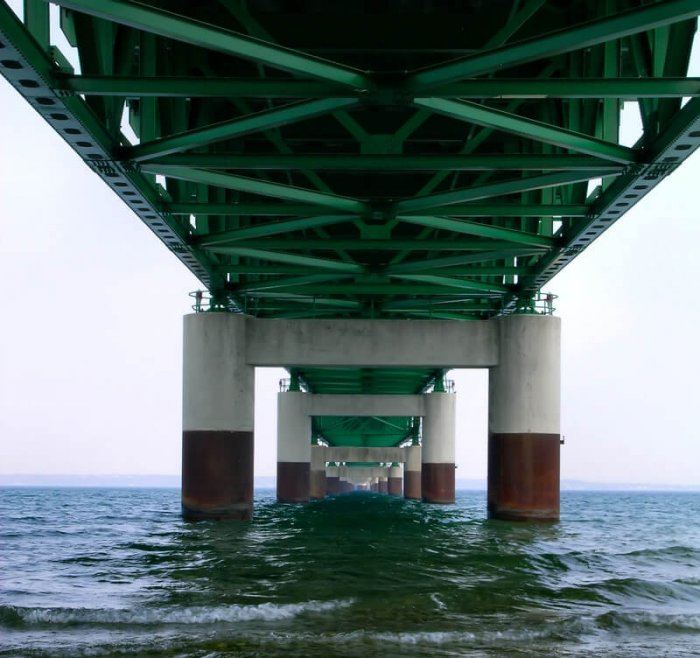 Being an underwater welder isnt something youll hear about in a kindergarten classroom but its still an awesome job Its an exciting work environment with lots of transferrable skills to other careers with either welding OR diving
Being an underwater welder isnt something youll hear about in a kindergarten classroom but its still an awesome job Its an exciting work environment with lots of transferrable skills to other careers with either welding OR divingWorking as an underwater welder can be a fascinating career. If you’re a person who is passionate about water and a hard-worker with ambition, it could be the job for you. It also pays a high salary and perhaps most importantly, does not require a college degree.
===>>Build An Income-Generating Website That Lasts Decades!
===>>Watch how I built my business step-by-step in a few minutes.
===>>Earn online income for a lifetime.
===>>Start Now<<===
A lot of pressure is placed on people to go to college and get a degree these days, as if it is the only way to get access to a good career, but this is not the case. There are plenty of good jobs out there that don’t require you to spend years in college building up extortionate debts through student fees – jobs like that of an underwater welder.
It’s not as simple as just walking into a job as an underwater welder, however – it’s a career path that will require you to put your head down and work for many years to gain the skills and expertise to do the role.
Over the course of this article we are going to answer some questions you may have about the role – like how do you become one and what is the salary of an underwater welder; as well as a look at the skills required for the role, some additional benefits that come attached to it and a look at some occupations that utilize a similar skill-set or occur in the same environment. First, we’ll look at what exactly an underwater welder does.
- What Does an Underwater Welder Does
- Skills of an Underwater Welder
- How to Become an Underwater Welder
- Salary and Additional Benefits
- Similar Occupations
- Conclusion
What Does an Underwater Welder Does
Underwater Welders’ – sometimes referred to as dive welders – main job is found within the title of the role – welding underwater… but there’s plenty more to the job than that.
An Underwater Welder uses many common arc welding processes to weld and cut in a wide range of aquatic environments. They must use their welding know-how and intricate knowledge of diving procedures and protocol to effectively lay down strong welds, often in tight spaces and less-than-forgiving surroundings. Underwater welding is performed in open waters up to several hundred feet deep.
The role of an underwater welder involves helping to create and repair dams, pipelines, bridges, commercial and military ships, nuclear power plants and oil rigs, and many other important parts of a modern infrastructure.
It’s easy to forget that not all of the essential machines and structures that allow our society and economy to run smoothly are located on land, making the work of an underwater welder very important.
Of a typical day, you may make your way to the dock with all of your gear, where a transport vessel will take you to the work site – perhaps many miles offshore. Once you’re at the dive site, you will then suit up, run through your checklist, and then dive into the water.
Once submerged, you will descend to the proper depth, review your project, report to top-side, and then go to work making the proper repairs/welds needed. After the job has been completed, you will communicate with top-side that the task has been fulfilled, and will then begin making your ascent towards the surface.
This may seem obvious based on the environment it takes place in, but a career as an underwater welder is a career in one of the world’s most dangerous professions – it’s a trade that isn’t for the faint of heart, which is something that could be said about both welding and diving, so combining the two inflates the risk.
Skills of an Underwater Welder
Swimming/Diving
Possibly the most important skill required to be an underwater welder – you will need to be very comfortable in water, and be an excellent swimmer and diver. You will receive certifications in these fields to ensure you’re competent enough to do the job, but you will also need to enjoy being in the water as this is so important to the role.
Calm
You’ll be working in a pressurized environment – underwater – and there will be a lot of risks involved in the role, so it is important that you’re able to keep a calm head under pressure. Rigorous safety precautions are undertaken to ensure you remain safe, but if a situation does arise, you may be required to make decisive decisions in a short time, and having a calm-disposition will assist you with this.
Communication Skills
Working underwater, it is imperative that you’re able to maintain good communication with your team on the surface – not every element of underwater welding takes place underwater! You’ll need to be able to verbalize what you’re seeing underwater to them (through communicative devices) and also be a good and active listener, so that you’re able to avoid risks and take precautions while working.
Physical Strength
As is the case with working as a traditional welder, working as an underwater welder requires you to operate heavy machinery, meaning you will need lots of physical strength. The day-to-day of the job can be intensive, so having physical strength and good stamina will hold you in good stead when working as underwater welder.
How to Become an Underwater Welder
The path to becoming an underwater can be long, varied and challenging. The first thing you’re going to have to do is attain a high school diploma/GED – once you’ve got this, you’re set to begin in earnest.
There’s not really a direct path into becoming an underwater welder. As such, you’ll first want to get experience as a welder on the surface – you will get this through the traditional means of acquiring certification as a welder and gaining some on-site work experience. This will be the longest part of your path to becoming an underwater welder – you don’t become an expert overnight, and it will take time; generally, between 2-5 years of experience is required to get up-to-standard, although you may find there are variables to this, depending on competency and also, luck.
In the mean-time, you will need to do some extra-curricular activity to earn diving accreditation. You will get this by applying to a commercial diving school – a list of which can be found here – with this accredation taking approximately a month to receive and ending with a physical exam.
A month isn’t a particularly long time to receive the qualification, but you’ll want to have both an interest in working in water and a basic diving ability already – these are essential; if you’re uncomfortable in the water, this isn’t the career for you, naturally.
Once you’ve got your commercial diving accreditation, you’re going to want to become an expert diver as well as welder. Continue to earn certifications that will assist you in procuring a career as an underwater welder – you’ll need to be certified in 3 areas (at least) to get a role – surface welding, underwater welding and commercial diving.
Once you have attained the necessary experience, certifications and skills, the next thing is to start applying for jobs as an underwater welder. You’ll do this by looking at job listings and looking for something you’d be interested in, and then throwing your hat in the ring!
Once you get your first job as an underwater welder, the training journey doesn’t end there – you’re going to want to keep expanding your skill-set and learning from working on-the-job. The more experience and skills you have, the better your salary will be!
Salary and Additional Benefits
Working as an underwater welder can be a lucrative career path. According to the Bureau of Labor Statistics, the median wage for an underwater welder is approximately $54,750, which works out at an hourly wage of $26.32 (the median wage is the figure at which 50 percent of workers earn more than and 50 percent earn less than so it gives a good indication of the average salary).
The highest 10 percent of those working as underwater divers are making more than a staggering $93,920, so it can be a very fruitful career.
Your salary as underwater diver is determined by four distinct factors: your experience in the job, who your employer is, the location you’re working in, and also, the depth of the dive you’re undertaking.
In terms of additional benefits that come with working as an underwater welder, it may vary based on your employer. Some employers may offer perks such as health and dental insurance; vacation days; sick leave; pension contributions and more – but these benefits may vary from employer to employer, so be sure to consult with them before committing.
Also, when working as an underwater welder, you’ll have attained several highly transferable skills. You’ll be an expert in two fields – diving and welding – and will be able to apply these skills and more across the world, as these are universal skills not necessarily bound by language. If you’d like to work in a far-flung part of the world, this is an option that is open to you!
Similar Occupations
You may be very interested in the career of an underwater diver, but also want to hear about other jobs. Luckily, there are other jobs out there that utilize similar skills-sets to that of an underwater welder that also don’t require you to have a college degree, like that of a commercial diver or a boilermaker.
Commercial Divers is an umbrella term that actually includes underwater welders but also applies to other activities, such as the building, repairing, and inspecting of structures that are submerged in liquid. These divers do tasks such as laying the foundation for a bridge piling, inspect pipes in water treatment plants, or rig and remove concrete remnants from the bottom of a river.
Boilermakers assemble, install, maintain, and repair boilers, closed vats, and other large vessels or containers that hold liquids and gases. Taking place on land, the work of a boilermaker share similarities to underwater welders in relation to the machinery you must utilize.
Conclusion
So, there you have it – everything you need to know to set yourself on the path to becoming an underwater welder. It can be a difficult career to gain access to, but if you put in the hard work, it can ultimately be a very rewarding livelihood.
Also, it’s a job that does not require you to have a college degree. Roles like that of an underwater welder are proof that you do not need a degree to get a good career, so be sure to assess all of your options before committing to a college for a number of years!
I never went to college, and it ended up being the best decision I ever made. Almost a decade ago I learned how to create my first online business, and now I work full time from home. The best part is that I set my own salary, and set my own schedule. If I want to make more money, I work harder. If I want to work less, I just take the day off!
What’s up ladies and dudes! Great to finally meet you, and I hope you enjoyed this post. I started my first online business in 2010 promoting computer software and now I help newbies start their own businesses. Sign up for my #1 recommended training course and learn how to start your business for FREE

